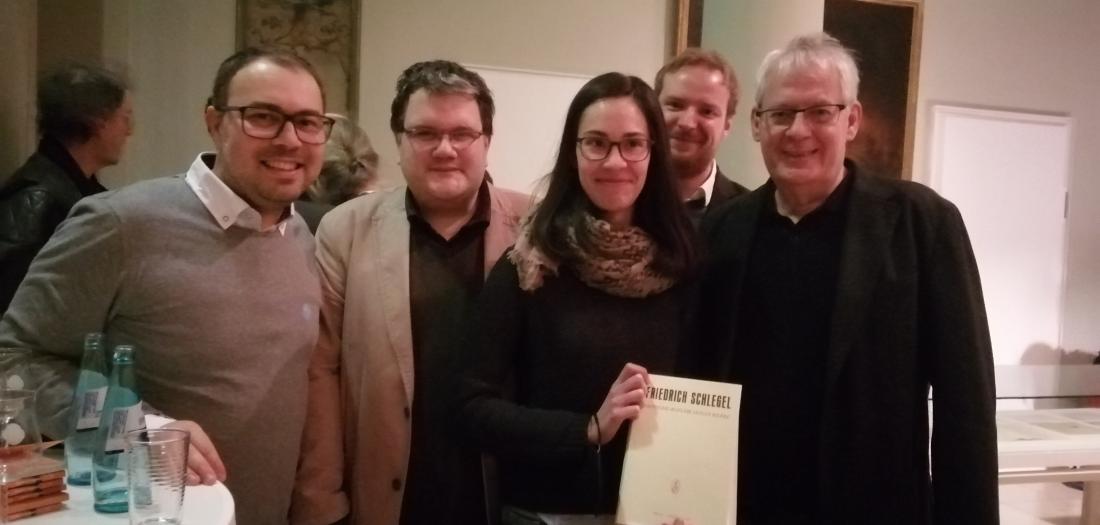During the revolt against Napoleon
Official presentation of the new volume of the Critical Friedrich Schlegel Edition on the correspondence of Friedrich and Dorothea Schlegel from the years 1811 to 1814.
14.02.2023 | General, Project News

© privat: von links R. Petkov, Dr. M. Bremm, A. Klee, T. Porzer sowie Prof. Dr. U. Breuer
Ulrich Breuer is Professor of Modern German Literature at the Johannes Gutenberg University Mainz and has been editor of the KFSA since 2007. The philological work on the extensive correspondence of the married couple Friedrich and Dorothea Schlegel with their numerous correspondents, as well as the digital workflow for the production of the volume now published, has been funded since 2017 by the German Research Foundation through a research project.
“Born digital” as a guideline
The entire production process of the volume, from data acquisition to indexing and annotation to the creation of the final printed copy, was conceived and set up by the TCDH team on the basis of the latest methods and procedures of the Digital Humanities. Matthias Bremm and Radoslav Petkov coordinate and adapt the virtual research environment "FuD" at the center, in which all letter texts, annotations, and register data are recorded and processed by the Mainz editing team, and ensure consistent data recording and dissemination. The preparation of the reproducible text layout is carried out dynamically in this way via a scheme created by Martin Sievers and aligned with the layout specifications of Schöningh Verlag using the LaTeX text typesetting system. The creation of the rough typesetting, followed by the time-consuming finishing of the fine typesetting, is in the hands of Anne Klee, who is thus responsible for the final harmonious appearance of the printed book. Overall, the interaction between the editorial team and the colleagues of the TCDH demonstrates how workflows in the humanities can be thought of and realized completely digitally, right from the start. This is especially important in view of the long-term availability of the data and its subsequent use, since a digital publication of the KFSA is also planned for the future.

